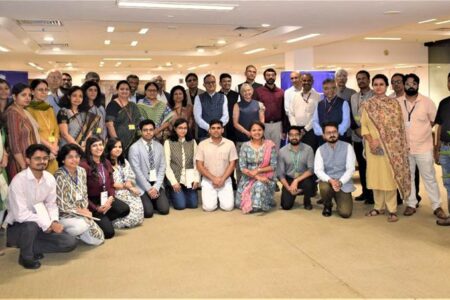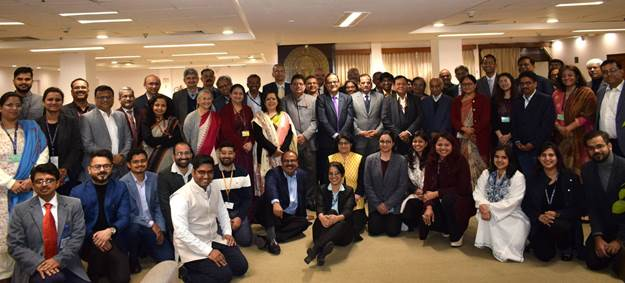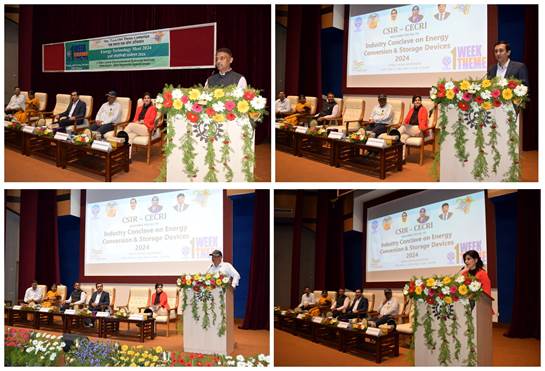The 24th Prime Minister Science, Technology & Innovation Advisory Council (PM-STIAC) meeting wasn’t just another bureaucratic rendezvous; it was a watershed moment for India’s medical product landscape. Ditching the “one-size-fits-all” approach, the meeting meticulously mapped a course towards a future brimming with innovation, affordability, and accessibility, tailored to the unique needs of each medical product segment.
 Gone are the days of generic discussions aimed at streamlining processes. The PM-STIAC meeting delved deeper, crafting specific solutions for each domain:
Gone are the days of generic discussions aimed at streamlining processes. The PM-STIAC meeting delved deeper, crafting specific solutions for each domain:
The discourse transcended mere efficiency, envisioning the nurturing of a vibrant innovation ecosystem. Experts advocated for seamless, globally aligned regulations that safeguard public health while nurturing advancements. This paves the way for not only self-reliance in essential medicines but also potentially positions India as a global force in pharmaceutical innovation, benefitting not just its citizens but the world at large. Imagine Indian-developed drugs gracing pharmacy shelves worldwide, a testament to the nation’s scientific prowess.
Recognizing the crucial role of self-sufficiency in public health security, the meeting prioritized simplifying vaccine development approvals. Dismantling the bureaucratic maze will not only accelerate domestic vaccine production, a cornerstone of India’s healthcare security but also position the nation as a potential global vaccine development hub, contributing to global health preparedness and potentially saving lives across borders. Imagine India becoming a vaccine powerhouse, safeguarding not just its citizens but contributing to global health security.
Building a resilient innovation ecosystem for medical devices demands addressing roadblocks and proposing effective solutions. This will empower healthcare professionals with advanced tools, ultimately benefitting patients and propelling India’s medical device industry onto the global stage. Imagine Indian-made medical devices revolutionizing diagnoses and treatments worldwide, not just improving domestic healthcare but also contributing to advancements that benefit the world. While acknowledging progress, the meeting recognized the need to address industry concerns regarding animal health products. Ensuring their quality and safety not only impacts animal health but also indirectly impacts human health, demanding a holistic approach with streamlined regulations.
Imagine India setting global standards in animal health products, safeguarding not just the well-being of animals but also indirectly contributing to public health, showcasing its commitment to responsible and sustainable practices. Discussions highlighted India’s potential to become a leader in Cell and Gene Therapy (CGT). Leveraging best practices from established frameworks will shape effective policies, positioning India at the forefront of this transformative field. Imagine India leading the way in personalized medicine, not just offering cutting-edge treatment options to its citizens but also contributing to breakthroughs that rewrite the script for healthcare globally.
Striking a Delicate Balance: Rigor Meets Innovation:
The meeting transcended mere efficiency, advocating for a vibrant ecosystem that is both robust and enabling:
-
Upholding Rigor: Stringent regulations remain paramount to ensuring the safety and quality of medical products. Public trust hinges on robust evaluation and approval processes that safeguard against harmful products, protecting the well-being of citizens and fostering confidence in the healthcare system.
-
Fostering Innovation: Enabling research, development, and innovation is crucial for advancing healthcare access and affordability. Streamlining processes without compromising safety standards is essential to nurture a thriving innovation ecosystem, propelling India towards self-reliance and global competitiveness in developing cutting-edge therapies. Imagine a scenario where India is not just consuming cutting-edge healthcare technologies but also developing them, contributing to advancements that benefit the world.
Recognizing that collaboration across ministries and agencies is key to overcoming hurdles and streamlining processes, the meeting emphasized breaking down bureaucratic silos and fostering collective action for a unified approach. This collaborative spirit is crucial for translating plans into action and ensuring the success of this ambitious endeavour. Additionally, PM-STIAC’s commitment to addressing identified issues in a tangible and time-bound manner signifies a shift towards concrete action, with a roadmap that outlines well-defined milestones, ensuring accountability and progress. Imagine a future where various government agencies work in tandem, dismantling bureaucratic hurdles and paving the way for a streamlined, efficient regulatory system.




